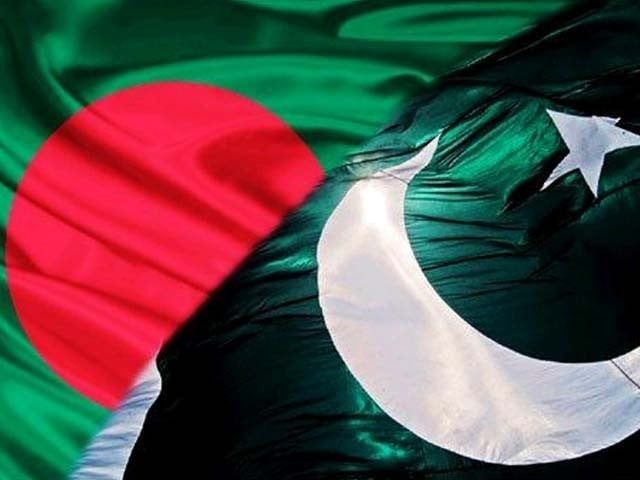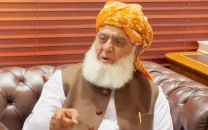Pakistan in diplomatic push to reset ties with Bangladesh
‘Closer people to people contacts will heal the wounds of the past’

Pakistan is quietly making efforts to mend its ties with Bangladesh after certain developments in the region have provided a window of opportunity to both countries to seek rapprochement.
Diplomatic sources familiar with the development believe that the current regional environment has compelled Islamabad and Dhaka to seek reengagement.
Relations between the two countries have remained tense for the last many years. The two countries have yet to overcome the bitter memories of 1971 events that led to the creation of Bangladesh.
What led to the current low in their ties was the decision taken a few years ago by the incumbent government of Shaikh Hasina Wajid to try and execute several leaders of Bangladesh Jamaat-e-Islami on charges of committing war crimes in 1971.
Pakistan was against such what it called politically motivated trials. It also accused Dhaka of violating the 1974 trilateral agreement between Pakistan, India and Bangladesh. Under the agreement, all countries including Bangladesh had agreed not to pursue cases against people involved in the 1971 events.
Relationship between the two countries worsened to the extent that Pakistan's National Assembly in 2016 passed a unanimous resolution condemning the execution of JI leaders.
Not just that the Bangladesh government refused to approve the appointment of Pakistani High Commissioner for 20 months. Islamabad eventually had to make the fresh proposal for the appointment of Imran Ahmed Siddiqui as envoy to Dhaka. His name was finally approved by Dhaka in November last year. Siddiqui joined the Pakistani mission in Dhaka in January, raising hopes of a thaw in their ties.
Earlier this month, Pakistani envoy held a rare meeting with Bangladeshi Foreign Minister AK Abdul Momen. Foreign Office sources were cautious about calling the meeting as "breakthrough" or whether this would lead to breaking the ice.
One of the reasons that foreign office sources were playing down the outreach was to avoid creating unnecessary hype and allowing "spoilers" to undermine such efforts.
Indian media reports expressed alarm over the meeting between Pakistani envoy and Bangladeshi foreign minister, claiming Islamabad was trying to take advantage of India's preoccupation with other issues.
New Delhi and Dhaka have longstanding ties and those relations further deepened when Indian Prime Minister Narendra Modi came to power in May 2014. India has exercised great influence over Bangladesh and took full advantage of PM Shaikh Hasina Wajid's mistrust with Pakistan.
But India and Bangladesh ties suffered a major blow when Modi government last year passed a controversial Citizenship Amendment Act (CAA). The law had triggered massive protests in Bangladesh and in March, Modi had to cancel his visit because of growing anti-India sentiments.
In the middle of this, China also made inroads in Bangladesh by offering economic and other partnership. Dhaka is already part of Belt and Road Initiative (BRI). Recently, Beijing allowed Bangladesh to export goods to China with zero tariffs. Similarly, China has been assisting Bangladesh dealing with Covid-19 pandemic.
As a result of this cooperation, Bangladesh surprisingly kept quiet over the recent military standoff between India and China. Dhaka even did not offer condolences to India over the killing of its 20 soldiers including a Colonel during a bloody fight with China in the high altitude Ladakh region.
Observers believe that the changing dynamics offered a good opportunity for Pakistan and Bangladesh to revisit their troubled ties.
A senior foreign office official said Pakistan wants to reset ties with Bangladesh. The official, however, said this reset was not aimed at any other country.
"Pakistan and Bangladesh share common bonds of history, culture and religion," the official said adding that, "there is a strong desire on both sides to strengthen bilateral relations."
There is a growing sense in Pakistan that the younger generation is especially keen to forge meaningful ties.
Also, Pakistan is appreciative of Bangladesh's "remarkable economic achievements," said the official.
At the same time, there is an acknowledgement that events of 1971 are the most painful chapter of the two countries' common history.
"Closer people to people contacts between two peoples will promote reconciliation and mutual understanding. This will heal the wounds of the past," Pakistani official stressed.



















COMMENTS
Comments are moderated and generally will be posted if they are on-topic and not abusive.
For more information, please see our Comments FAQ